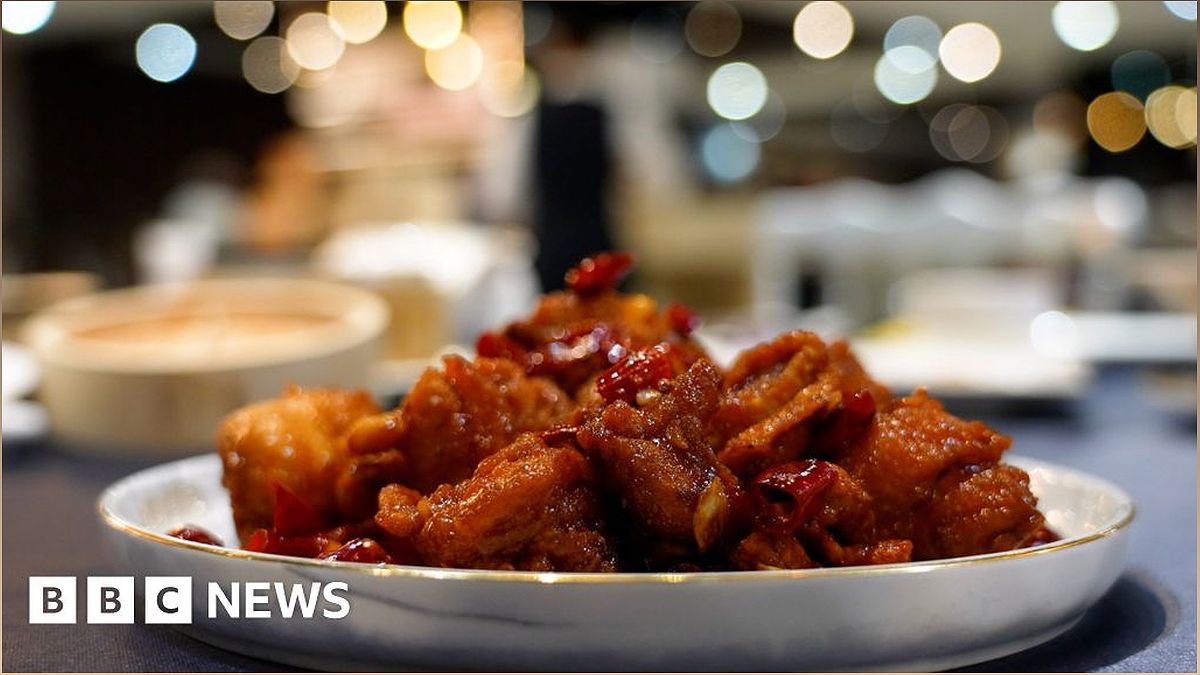Embark on a culinary adventure through Taiwan, where indigenous chefs like Aeles are bringing their traditional cuisine to the forefront. Experience the vibrant flavors of millet dumplings and smoked pork, while learning about the rich history and cultural significance of these dishes. Discover how Taiwan's diverse culinary landscape reflects its complex identity and defies Chinese claims. Join us on a journey of flavor and identity as we explore the unique and delicious world of Taiwanese cuisine.
Taiwan's Indigenous Cuisine: A Journey of Cultural Rediscovery
Taiwan's indigenous tribes have a long history of unique culinary traditions that have been passed down through generations. However, these traditional dishes were once difficult to find outside of the indigenous communities. In recent years, there has been a resurgence of interest in Taiwan's indigenous cuisine as the country's identity takes shape. Indigenous chefs like Aeles are playing a vital role in bringing their traditional food to the forefront and ensuring that their culture is represented on the plate.
With an election looming and China's claims over Taiwan becoming more prominent, the indigenous population is asserting their identity and challenging the narrative that Taiwan is solely a part of China. Through their cuisine, indigenous chefs are reclaiming their cultural heritage and highlighting the unique flavors and stories behind their dishes.
Aeles: Preserving Tradition Through Food
Aeles, a member of the Rukai tribe, grew up facing discrimination for her indigenous heritage. Determined to embrace her roots, she opened her own restaurant, Dawana, which serves traditional Rukai cuisine. Through her dishes, Aeles pays homage to her tribe's hunting culture with smoked pork and blood sausage, while also incorporating outside influences with dishes like a cheesecake infused with the flavor of betel leaves.
For Aeles, running her restaurant is not just about making money, but about staying connected to her tribe and sharing her food with others. She sees her culinary journey as a way to reclaim her cultural identity and challenge the dominant narrative of Taiwanese cuisine.
Akame: A Modern Grill Celebrating Indigenous Flavors
Akame, owned by chef Alex Peng, offers a unique dining experience that blends the delicious simplicity of Rukai cuisine with influences from Chinese, Italian, and French cooking. Located in the heart of the Rukai tribe, Akame is known for its innovative dishes that showcase local ingredients and flavors.
From millet-topped bread to pineapples served with a spiced mascarpone, each dish at Akame is a tribute to the chef's heritage and a celebration of the diverse culinary influences that have shaped Taiwan's food culture. The restaurant's attention to detail, from the miniature Rukai hunting knife-shaped knives to the plates adorned with tribal totems, creates a truly immersive dining experience.
Taiwan's Culinary Tapestry: A Fusion of Influences
Taiwan's culinary landscape is a testament to its complex history and diverse cultural influences. From General Tso's chicken, which was invented in Taiwan, to the popular street food snacks influenced by Chinese and Japanese immigrants, the island's cuisine is a fusion of flavors and traditions.
The Chinese Nationalists who fled to Taiwan brought their own fare, forever changing the Taiwanese table. Additionally, Japan's colonization of Taiwan from 1895 to 1945 left a lasting impact on the island's food culture, introducing ingredients like short grain rice and influencing the use of soy sauce and rice wine.
Today, Taiwanese cuisine reflects a harmonious blend of these influences, creating a unique culinary tapestry that tells the story of Taiwan's complex identity and history.
Food as a Catalyst for Identity and Unity
Food has always played a significant role in shaping cultural identity, and Taiwan is no exception. Taiwanese cuisine serves as a powerful catalyst for unity, bringing people together through shared flavors and culinary traditions.
As Taiwan's indigenous chefs reclaim their cultural heritage and showcase their traditional cuisine, they are not only preserving their own identity but also contributing to a broader sense of Taiwanese identity. Through food, people from different backgrounds can come together, appreciate each other's heritage, and celebrate the rich diversity that makes Taiwan's culinary scene so vibrant.
Whether it's enjoying a bowl of braised pork rice at a night market or savoring the delicate flavors of indigenous dishes, Taiwanese cuisine continues to bring people together and foster a sense of pride in the country's unique cultural heritage.

